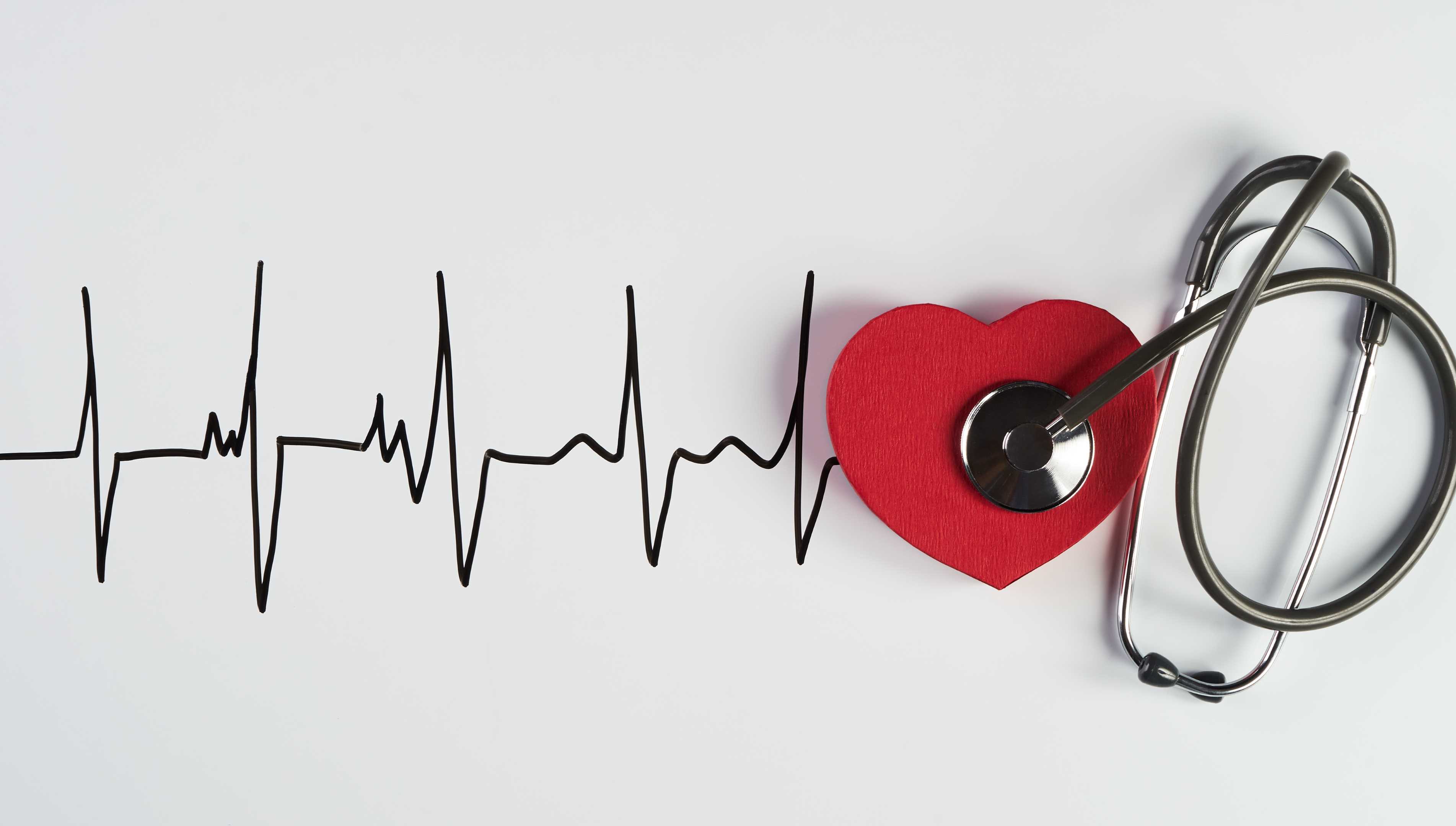Does Heat Affect Heart Rate? The Effects of Hot Weather on the Heart

Posted on August 7th, 2024.
When stepping outside feels like walking into an oven, the body's natural cooling mechanisms kick in, putting your cardiovascular system to the test.
These internal processes involve more than just sweating, and could you ever imagine that the simple act of sweating can significantly impact your heart's workload?
Now, as you think about experiencing that sweltering heat, your body has to balance between maintaining core temperature and ensuring every system works smoothly.
You might be surprised to know that the heart plays a crucial role here, and a closer look will unveil how intricate this balancing act is.
Ever felt your heart pound harder on a hot day? There's a good reason behind this increased heart rate. To manage heat, your body employs clever physiological responses. They seem almost routine, but the heart's efforts are truly heroic, as it works to keep you safe in such conditions.
Summer's fiery embrace requires vigilance, especially for those with preexisting heart conditions or older adults. Your body, working relentlessly to cool itself, makes use of processes that can strain your cardiovascular function. It's fascinating how the heart, that dependable organ, rises to the occasion, accommodating the needs of a body under heat stress.
Understanding these dynamics can help you appreciate your body's resilience and, importantly, point out the need for extra care and preventive measures during extreme heat. This insight enables you to recognize early signs of heat-related stress and implement effective strategies to protect your heart health.
Understanding the Physiological Impact of Heat on Heart Rate
 When exposed to heat, your body works diligently to minimize internal temperature increases.
When exposed to heat, your body works diligently to minimize internal temperature increases.
A key response to heat exposure is vasodilation, the widening of blood vessels, particularly those near the skin's surface. This vasodilation helps to dissipate excess heat.
However, this expansion means your heart must pump more blood to these now-dilated vessels.
Therefore, the heart rate increases to maintain an adequate circulation of blood, which in turn helps to support the body's cooling efforts through enhanced heat dissipation via the skin.
Adding to the complexity, when your body is exposed to high temperatures, it generates more sweat as an evaporative cooling mechanism. Sweat production aids in cooling the body by releasing heat through sweat evaporation on the skin. As a result of substantial fluid and electrolyte loss through sweating, your heart has to work harder to circulate blood volume efficiently. This process further accentuates the increase in heart rate, illustrating another dimension of how heat and heart rate dynamics are intertwined.
Does heat affect heart rate? Definitely. With the heart working harder to cool the body through both vasodilation and sweating, there's a considerable impact on cardiovascular performance, especially when temperatures soar. You may notice that during hot weather, your resting heart rate can be higher than usual.
Those with preexisting heart conditions or older adults might feel the effects even more acutely. Making preemptive adjustments, such as staying hydrated and avoiding excessive heat exposure, can significantly mitigate these effects. Ensuring good hydration is critical because the more dehydrated you become, the harder your heart has to work to pump blood.
Heat Stress and Cardiac Function
Heart failure, which impairs your heart's ability to pump blood efficiently, can be exacerbated by heat. As previously mentioned, the heart must work harder to maintain proper blood flow and cooling mechanisms in high temperatures. Now, picture the additional burden this places on an already weakened heart. The increased demand for cardiac output can lead to symptoms such as shortness of breath, fatigue, and edema. Combined with fluid loss through sweating, these individuals may face higher risks of heat-related illnesses. Additionally, electrolyte imbalances due to excessive sweating can also lead to arrhythmias, posing a serious health threat.
Furthermore, high temperatures heart risk isn't just limited to those with heart failure. Even individuals without known cardiovascular issues can experience heightened heart risks during heatwaves. Older adults are particularly susceptible due to age-related changes in cardiovascular and thermoregulation systems. The heart's ability to adapt can diminish with age, making it less efficient at dealing with additional stressors.
Recognizing the signs of heat stress can act as an early warning system. Promptly addressing these symptoms can prevent more severe complications. By understanding these dynamics and taking appropriate actions, you can better protect your heart health during periods of intense heat.
Recognizing and Preventing Heat-Related Heart Risks
Recognizing and responding to the initial symptoms of heat-related heart stress, such as palpitations, dizziness, and chest pain, is crucial for maintaining your cardiovascular health during hot weather:
- Palpitations, described as a feeling that your heart is racing or pounding, can be a telltale sign that your heart is under unusual strain.
- Dizziness or light-headedness often indicates a drop in blood pressure, another result of your body’s efforts to combat heat.
- Chest pain, which may feel like pressure or a squeezing sensation, is a more severe symptom that warrants immediate medical attention.
Should you experience any of these symptoms, it’s important to take them seriously. By recognizing these early signs, you can take prompt actions to mitigate their effects and seek medical guidance if necessary.
Safety Tips for Extreme Heat Conditions

1. Avoid Undue Exposure to High Temperatures
Staying informed about weather conditions and heat advisories can play a crucial role in protecting your heart health. Local weather forecasts and public health advisories often provide valuable information on heat waves and extreme heat events. You might receive alerts that help you plan your day and avoid undue exposure to high temperatures.
- Stay indoors during peak heat hours, typically between 10 AM and 4 PM, when the sun’s intensity is at its highest. Opt for indoor activities or schedule outdoor activities for early mornings or late evenings when the temperature is cooler.
- Wearing light, breathable clothing and taking breaks in shaded or air-conditioned areas can significantly reduce the risk of heat stress cardiac function issues.
- If you do not have access to air conditioning at home, public spaces such as libraries, malls, and community centers can offer a respite from the heat.
- It's also wise to monitor your heart rate more closely during these periods and consult your healthcare provider for personalized advice. Keeping an open line of communication with your medical team can help you navigate these challenges effectively.
2. Stay Hydrated
Hydration is not merely about drinking water; it involves replenishing critical electrolytes:
- Drinks like sports beverages can be particularly useful during a heatwave, especially if you are involved in physical activities. However, caution is needed to not overconsume sugary drinks. Homemade oral rehydration solutions or electrolyte tablets can offer a balanced alternative.
- Periodic sips throughout the day are more effective than gulping down a large volume of water at once. This approach helps maintain steady hydration levels, ensuring your cardiovascular system doesn't have to work harder due to fluctuating fluid levels.
- If you take medications that affect your fluid balance, consult your healthcare provider about any needed adjustments. They can offer tailored advice to better manage your cardiovascular heat stress during these challenging periods.
3. Know When to Seek Medical Attention
Lastly, know when it is critical to seek medical attention. Extreme heat heart safety isn't just about preventive measures; it's also about recognizing when those measures aren't enough. If you experience severe symptoms such as chest pain, persistent dizziness, severe headaches, or confusion, these could signal heat-related illnesses that need immediate medical intervention. Quick action could prevent a minor condition from turning into a medical emergency.
- Familiarize yourself with the locations of nearby medical facilities and keep an emergency contact list handy.
- Regular check-ins with family members or neighbors can provide an extra layer of safety. During heat waves, reaching out to your support network ensures there is always someone who can assist you in a timely manner, thus safeguarding your heart health effectively.
Final Words
Your heart health becomes increasingly important in hot weather. That's why being vigilant and proactive about your well-being can't be overstated. Recognizing how heat affects your heart and taking measures like staying hydrated, avoiding peak heat hours, and monitoring your symptoms can make all the difference.
At The Ruth Lee Miller Heart Health Research Foundation, we offer comprehensive education on heart health to help you understand and navigate these challenges. Our goal is to equip you with the knowledge and resources to protect your heart, particularly during those demanding summer months.
In addition to educational resources, we provide local heart health screenings which can be particularly beneficial in identifying any concealed issues that might be aggravated by extreme heat. Regularly checking your heart health ensures you are in the best position to mitigate any risks. We also offer grants to support research and services aimed at improving cardiovascular health. By proactively participating in these screenings and leveraging our supportive services, you are making a conscious effort to maintain your heart health in diverse conditions. Our team is always here to help, providing a wealth of information and support tailored to your specific needs and conditions.
Feeling overwhelmed or unsure of how to implement these changes? Our dedicated heart health support services are just a call away.
For personalized advice, you can consult with our experts by calling (314) 669-1445 or emailing us at [email protected]. Sometimes, a little guidance is all you need to take significant strides toward better cardiovascular health. Remember, staying informed and prepared can significantly improve your quality of life.
Contact
Get in Touch
We're here to answer your questions, explore partnerships, and collaborate on heart health initiatives. Join us in our mission to empower healthier hearts, and together, we can make a real impact.

